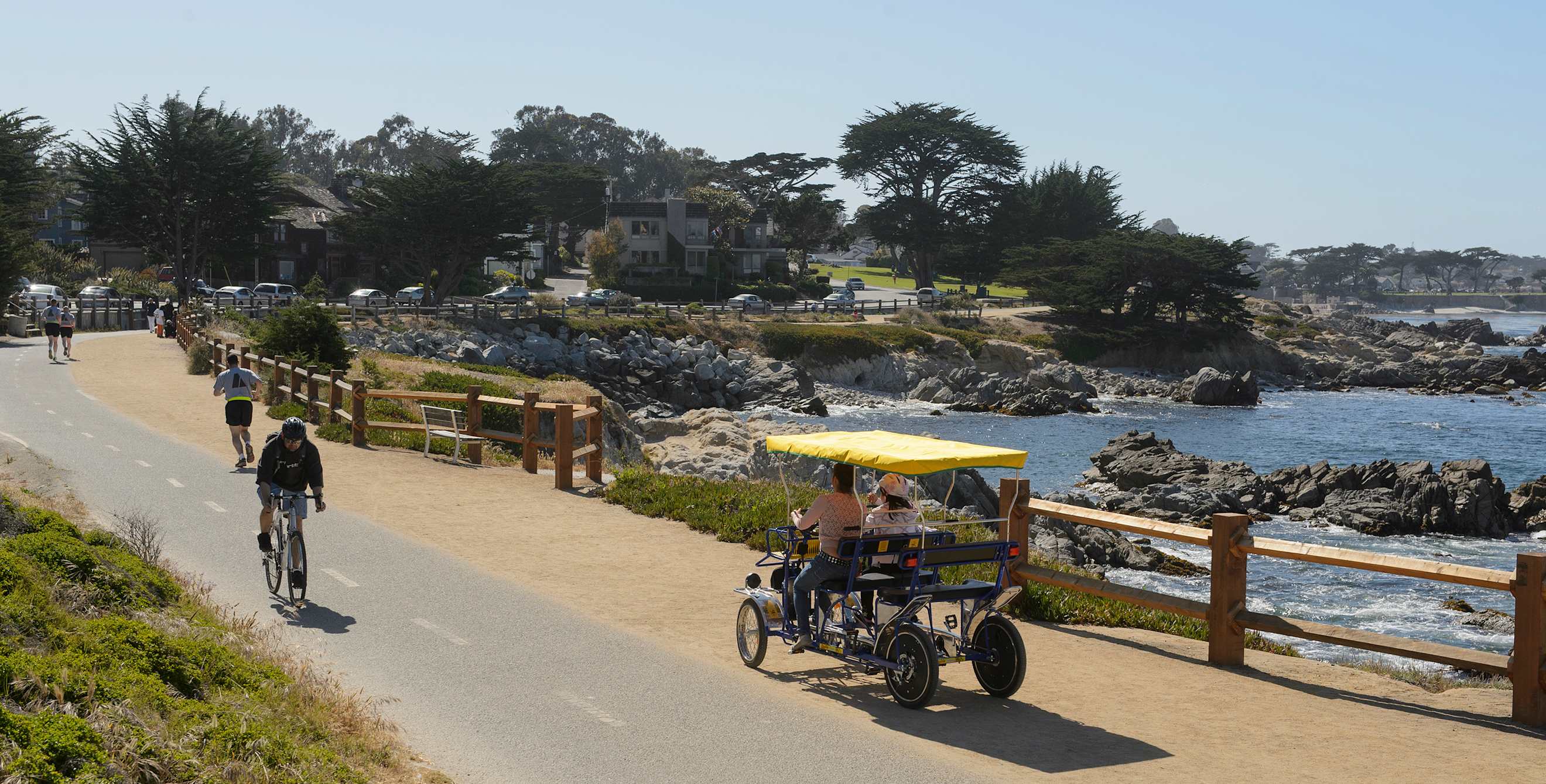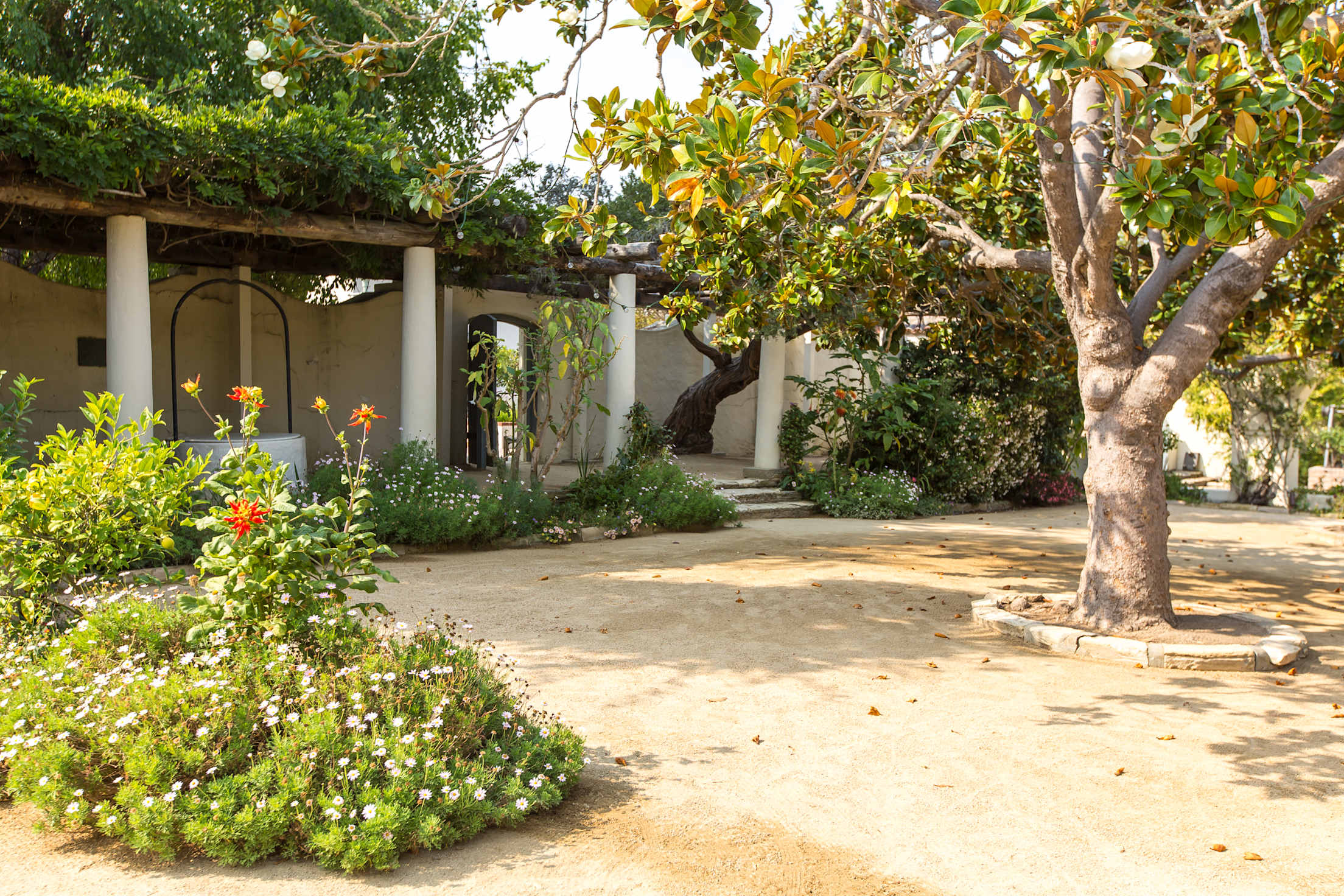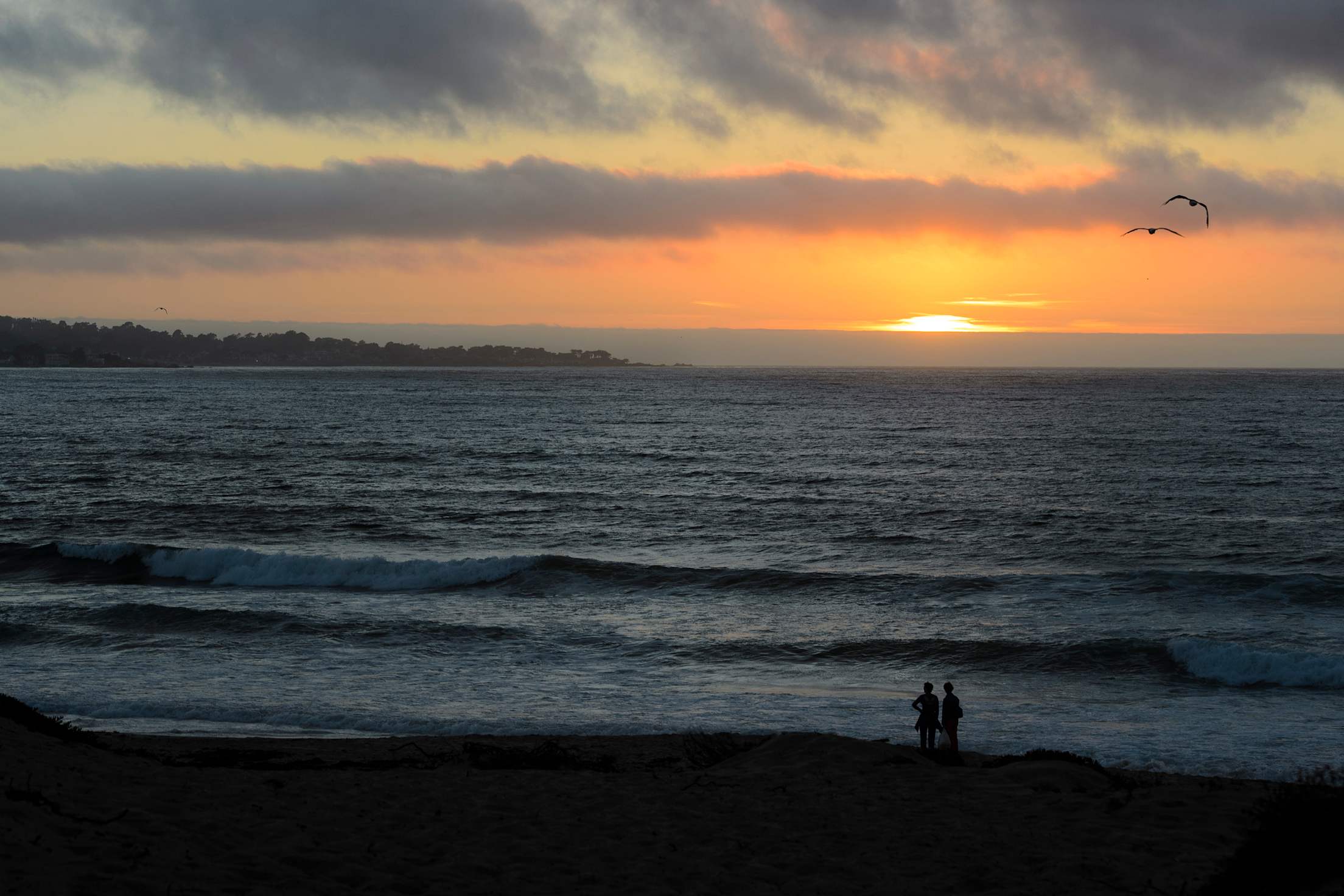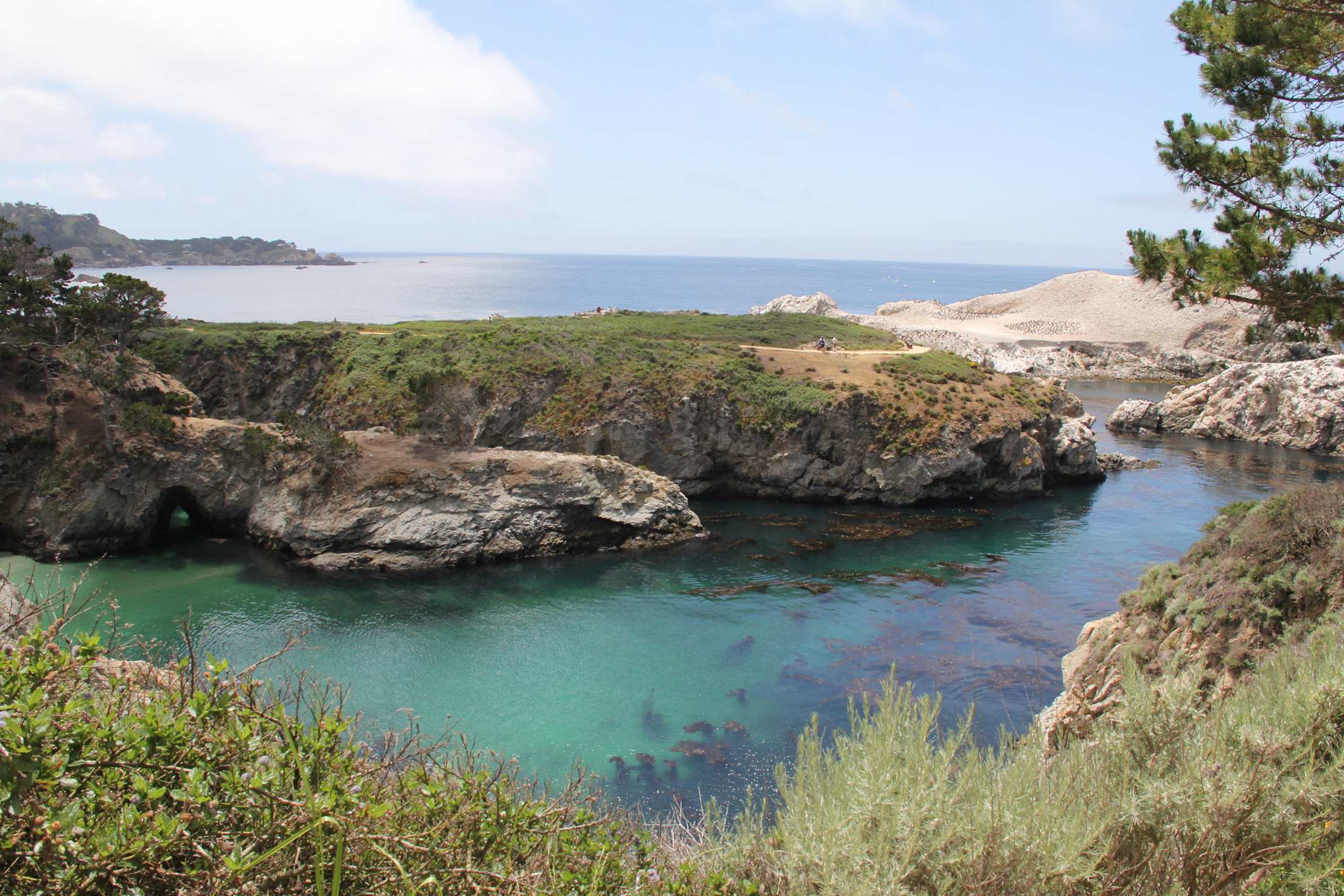
Top Things to Do in Monterey and Carmel, California
Monterey Peninsula’s natural beauty is illustrated in the works of creators from Steinbeck to Dalí.

The area abounds with iconic imagery such as rocky sandstone outcrops, wind-sculpted cypresses, and glassy coves filled with swaying kelp forests. In Monterey, California the sea commands as much attention as the land, with nutrient-rich waters luring a vibrant diversity of marine life including the region’s de facto mascot, the furry sea otter. In fall, foggy skies clear and summer crowds thin, making it an opportune time to explore the area’s many outdoor treasures.
Bike the Monterey Coast
The wildly scenic Monterey Bay Coastal Recreation Trail hugs the dramatic shores of Monterey Bay, spanning 18 miles from Pacific Grove to Castroville along a former Southern Pacific Railroad route. Hop on a bike at a number of rental stands that dot the path including Custom House Plaza, a good starting point in Monterey. The pathway zips past tourist hot spots such as Cannery Row and the Monterey Bay Aquarium, but the showstopping views of the bay come immediately northwest of both. The trail officially ends at Lover’s Point, an especially scenic park-like promontory, but you can continue onto lightly trafficked Ocean View Boulevard where the glassy waters of Monterey Bay give way to the tide pools and crashing waves of the Pacific. For more surreal landscapes, pop into the Dali Expo situated along the trail and filled with original artworks by former Monterey resident, Salvador Dalí.

Discover one of Monterey's many historic gardens such as the Memory Garden at the Pacific House.
Discover Secret Historic Gardens
History is abloom at the lush courtyard gardens tucked behind the Spanish-era homes that comprise Monterey Historic State Park. Often bypassed due to tall obscuring walls, the mature gardens offer year-round blooms and quiet respite amid Monterey’s bustling downtown. At the 1847 Pacific House, the magnolia-shaded Memory Garden—designed in 1927 by noted landscaper Frederick Law Olmstead, Jr.—features a rippling Spanish tile–adorned fountain and original plantings of wisteria, citrus trees, and a sprawling Australian tea tree. The garden wasn’t always this genteel. The site once hosted ferocious bear and bull fights, an unfortunate spectator sport during California’s early years.
Enjoy a Bird’s-Eye View of the Monterey Peninsula
Thrilling, easily accessed panoramic vistas lure visitors to Jacks Peak Park, a 525-acre nature preserve that encompasses the highest point on the Monterey Peninsula and one of the last native Monterey pine forests in the world. From a hilltop parking lot, follow the .8-mile Skyline Nature Trail as it loops across a forested ridge with sweeping views of the region and numerous points of interest such as shale-embedded Miocene fossils detailed in an interpretive pamphlet available at the trailhead. Scenic, BBQ grill–equipped day-use areas make it a popular picnic spot; just remember to pack the burger patties and Monterey Jack. The park’s 1,068-foot peak honors David Jack, a prominent 19th-century landowner who has been credited with popularizing the creamy cheese.

Carmel Beach provides an auspicious setting for watching the sun dip behind the cool waters of Monterey Bay.
Catch a Brilliant Sunset
A wide expanse of pure white sand and crystal-clear waters lure visitors from Carmel-by-the-Sea’s charming village to Carmel Beach. Plunk yourself in the sloping dunes at the foot of Ocean Avenue and enjoy views of Carmel Bay, frolicking off-leash pups, and wetsuit-clad surfers slicing through turquoise waves. Stretch your legs on a pedestrian path that skirts the beach’s cypress-lined bluff and ends at the striking Frank Lloyd Wright–designed Clinton Walker House. Each evening, everyone pauses to watch the setting sun light up the sky. Twelve beach fire pits, intended to be shared, keep things toasty when cool sea air inevitably sweeps in.

Point Lobos' remarkable China Cove as seen from the Bird Island Trail.
Explore an Extraordinary Seaside Landscape
The glory of the Monterey Peninsula is on full display at Point Lobos State Natural Reserve, a dazzling promontory where hyperboles don’t run short. Start at the blufftop Bird Island Trail that in less than a mile circles peaceful coves with seal-filled beaches, craggy sea caves, and impossibly clear, aquamarine waters. At popular diving spot Whalers Cove, a 3D model of the reserve’s less-explored underwater realm lends landlubbers a glimpse of the towering pinnacles and mile-deep canyons found just offshore. From the cove, agile hikers can trek the varied terrain of the sage-perfumed North Coast Trail, which skirts sheer, rugged cliffs with numerous overlooks of the churning sea below. At 1.4 miles, you can continue to the Cypress Grove Trail that leads through an enchanting tangle of Monterey cypresses, one of only two natural stands in the world. Note that while the views are expansive, the parking is not. Arrive by 10 a.m. to nab a spot.